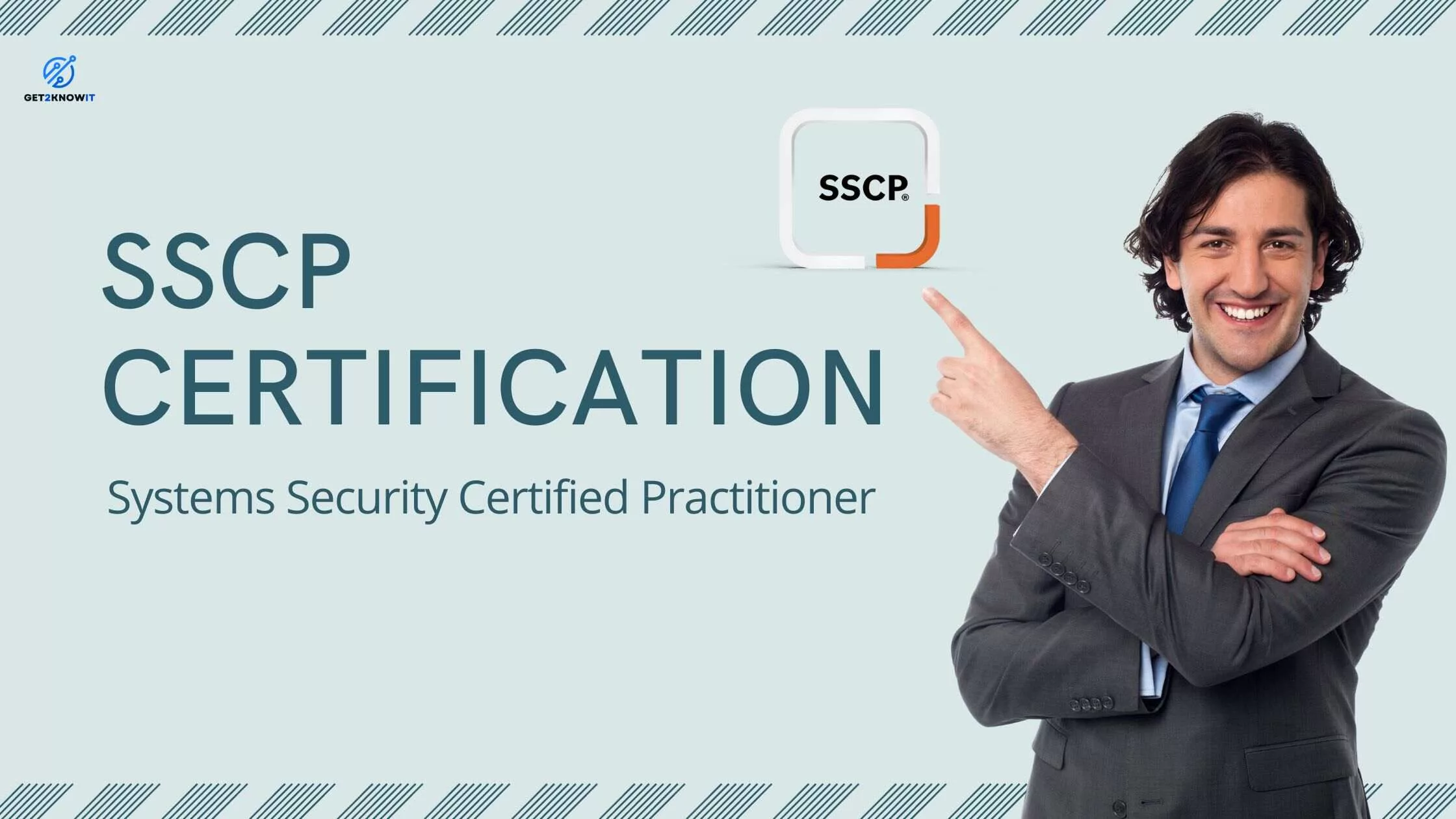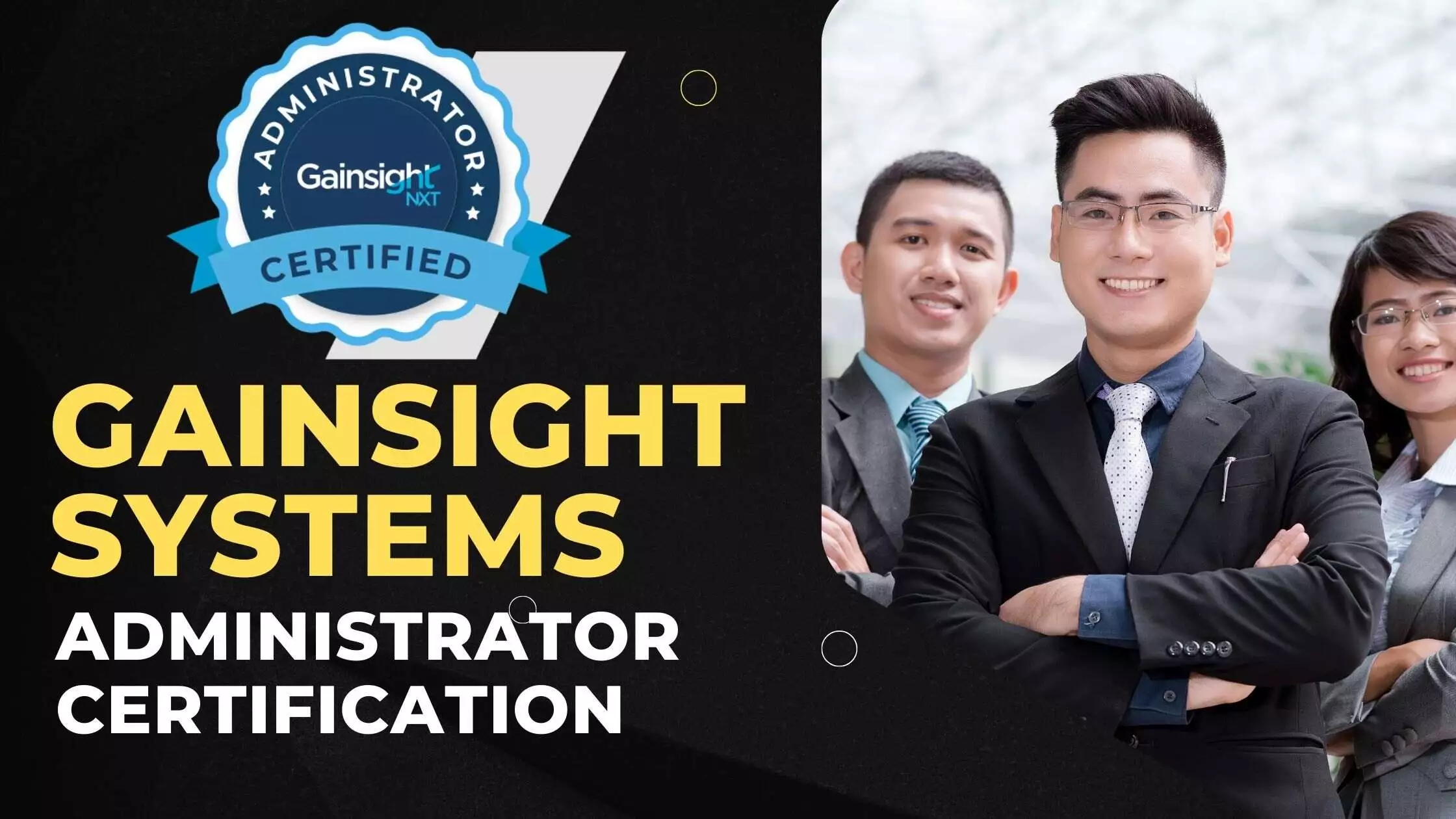SSCP certification, short for Systems Security Certified Practitioner, is a significant credential in the field of cybersecurity. In today’s digitally driven world, where data security is paramount, SSCP certification equips professionals with the knowledge and skills to protect critical information systems.
Understanding SSCP Certification
SSCP stands for Systems Security Certified Practitioner. It is a professional certification in the field of cybersecurity.
The organization that offers the SSCP certification is (ISC)², which stands for the International Information System Security Certification Consortium. (ISC)² is a globally recognized nonprofit organization that specializes in information and cybersecurity certifications. It’s known for maintaining high standards and providing certifications that validate the expertise and knowledge of cybersecurity professionals.
The SSCP certification holds significance in the cybersecurity industry for several reasons:
- Validation of Skills: SSCP certification validates a professional’s skills and knowledge in various aspects of information security, including access controls, cryptography, risk identification, and security operations.
- Career Advancement: It serves as a valuable credential for individuals looking to advance their careers in cybersecurity. Many employers in the industry recognize and prioritize candidates with SSCP certification.
- Industry Recognition: (ISC)² is a respected and reputable organization in the cybersecurity field. SSCP is globally recognized and respected, providing professionals with a credential that carries weight in the industry.
- Comprehensive Knowledge: SSCP covers a wide range of security domains, making certified individuals well-rounded in various aspects of cybersecurity.
- Cybersecurity Challenges: SSCP certification ensures professionals remain current with the latest security practices. Offered by (ISC)², it’s a pivotal certification validating cybersecurity skills, fostering career advancement, and enhancing organizational security.
Eligibility and Requirements for SSCP Certification
The SSCP certification is a prized credential in cybersecurity, requiring candidates to meet eligibility criteria and fulfill specific requirements:
- Professional Experience: Candidates must have a minimum of one year of cumulative, paid, full-time work experience in one or more of the seven domains of the SSCP Common Body of Knowledge (CBK). If the candidate doesn’t have the required work experience, they can still take the SSCP exam to become an Associate of (ISC)². Once the necessary work experience is acquired, the candidate can then become a fully certified SSCP.
- Education: A candidate can substitute one year of required work experience with a degree from an accredited college or university, or a credential from the (ISC)²-approved list. This reduces the work experience requirement to a minimum of four years.
- Pass the SSCP Exam: Candidates must pass the SSCP exam, which assesses their knowledge across various security domains, including access controls, risk identification, and cryptography, among others.
- Adherence to the Code of Ethics: All candidates must agree to adhere to the (ISC)² Code of Ethics. This code sets standards for professional behavior in the field of cybersecurity.
- Endorsement: After passing the SSCP exam, candidates need to be endorsed by an (ISC)² certified professional who can verify their work experience and confirm their commitment to the Code of Ethics.
- Maintenance: Once certified, SSCP professionals must maintain their certification by earning Continuing Professional Education (CPE) credits and passing the required CPEs each year.
These eligibility and requirements ensure that SSCP-certified professionals have the necessary knowledge, experience, and commitment to maintain high standards of information security in the industry. The SSCP certification is a well-respected credential that demonstrates a professional’s expertise in the field of cybersecurity.
SSCP Certification Exam Details
The SSCP certification exam is a crucial assessment that evaluates a candidate’s information security knowledge and skills. Here’s a detailed look at the SSCP exam.:
- Exam Content:
- The SSCP exam assesses a candidate’s understanding of various security domains, which are based on the (ISC)² Common Body of Knowledge (CBK). These domains include Access Controls, Security Operations and Administration, Risk Identification, and more.
- As of my last knowledge update in January 2022, there are seven domains in the SSCP CBK, each with specific topics and subdomains.
- Question Format:
- The SSCP exam consists of a mix of question types, including multiple-choice, drag-and-drop, and scenario-based questions.
- Candidates need to demonstrate their ability to apply their knowledge to real-world scenarios.
- Duration:
- The SSCP exam typically lasts three hours.
- Passing Score:
- To pass the SSCP exam, candidates need to achieve a minimum scaled score of 700 out of 1000 points.
- Prerequisites:
- Candidates must meet certain eligibility requirements, which include having a minimum of one year of full-time work experience in one or more of the SSCP CBK domains. Candidates can reduce this requirement with relevant educational credentials.
- Preparation:
- To prepare for the SSCP exam, candidates often use study materials and resources offered by (ISC)².
- Significance:
- The SSCP certification is globally acknowledged, showcasing a candidate’s skill in creating, executing, and overseeing secure environments in organizations.
- It is a valuable credential for professionals aspiring to work in roles related to information security and cybersecurity.
- Continuing Education:
- Once certified, SSCP professionals are required to earn Continuing Professional Education (CPE) credits annually to maintain their certification.
It’s essential to note that certification exams and their details may change over time, so candidates should refer to the official (ISC)² website for the most up-to-date information on the SSCP exam.
Please verify the latest details regarding the SSCP certification exam on the official (ISC)² website or other reliable sources.
Benefits of SSCP Certification
The Systems Security Certified Practitioner (SSCP) certification offers several advantages to individuals seeking to enhance their career prospects in the field of cybersecurity. This certification, offered by (ISC)², signifies a commitment to information security and demonstrates a specific skill set. Here are some of the key advantages of holding an SSCP certification:
Validation of Expertise:
The SSCP certification validates a professional’s expertise in various security domains, such as Access Controls, Security Operations and Administration, Risk Identification, and more. It confirms that the holder possesses a strong foundational knowledge of information security, making them a valuable asset to organizations.
Career Opportunities:
SSCP certification broadens career prospects in cybersecurity, enabling professionals to explore roles like security analyst, consultant, and network security administrator.
Industry Recognition:
(ISC)² is a globally recognized and respected organization in the field of cybersecurity. Holding an SSCP certification demonstrates an individual’s commitment to maintaining high ethical and professional standards in the industry, which is highly regarded by employers.
Competitive Advantage:
In a competitive job market, having an SSCP certification sets candidates apart from their peers. It shows potential employers that the holder has the skills and knowledge necessary to address complex security challenges effectively.
Skill Enhancement:
Preparing for the SSCP certification exam involves in-depth study and practical application of security principles. This process enhances a professional’s understanding of security best practices, risk management, and compliance, which can be applied directly in their roles.
Global Reach: The SSCP certification is recognized worldwide. This global recognition means that certified professionals have the flexibility to work in various geographic regions and collaborate with international teams.
Job Security:
In a world where cyber threats continue to evolve, organizations are increasingly concerned about security. SSCP-certified professionals are well-equipped to help organizations safeguard their digital assets, leading to greater job security.
Continuing Education:
To keep their SSCP certification, experts must accumulate Continuing Professional Education (CPE) credits, which guarantee they stay current with cybersecurity trends, boosting their career outlook.
The SSCP is a prized qualification, validating skills and knowledge in information security, and endorsed by (ISC)² and the cybersecurity community, amplifying its value for those aiming to excel in this vital field.
Real-World Application of SSCP Certification
The knowledge acquired through SSCP certification is highly practical and directly applicable to real-world cybersecurity challenges. For instance, in a workplace scenario, an SSCP-certified professional can effectively implement access controls to secure an organization’s network and data. SSCP professionals can set up and oversee authentication methods, such as multi-factor authentication, to limit access to authorized users. They create and enforce security protocols, safeguarding against data breaches and unauthorized entry.
Their expertise in risk management and security operations allows them to identify vulnerabilities, proactively tackle threats, and respond swiftly to incidents. This practical use of SSCP knowledge protects an organization’s digital assets, lowers the risk of cyberattacks, and strengthens its cybersecurity stance.




